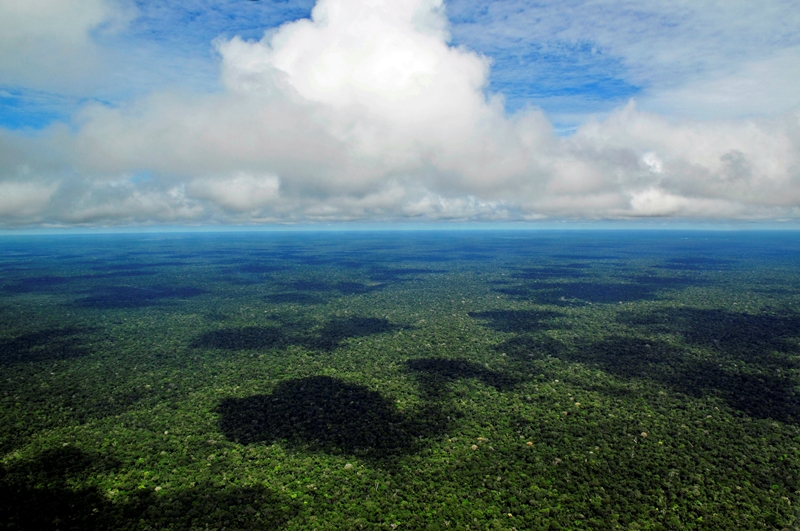Sustainability at the heart of the discussion on investment and reputation

Brazilian communication leaders discuss the positioning of foreign investors on the country’s image
By Aurora Ayres

The negative impact of the open letter sent by international investors, on June 23, to Brazilian diplomats, has nourished an old discussion. In the document, the group signals to divest in Brazil because of the increase in deforestation in the Brazilian rainforest. Investors are increasingly considering environmental issues and recognizing that climate risk is an investment risk.
“A good reputation is a determining factor for a country to attract investment, trade partnerships, and diplomatic support. Likewise, a nation led by a government in a serious ethical crisis repels partnerships and investments”. This is the international perception of Brazil in the first half of this year, according to a study by Curado & Associados, a consultancy specialized in image and reputation management that publishes quarterly reports about Brazil’s image abroad.
Image and reputation consultant Emerson Couto, from Curado & Associados, explains that the ethical dimension of the image refers to the value dimension, i.e., on purpose. “These are quotes of behavior that take into account the congruence that is morally accepted by society and respect for fundamental individual rights,” he said.
The study highlights that the essence of the image was that of an ‘irresponsible’ Brazilian federal government, which promotes attacks on democracy, disrespects medical and scientific recommendations in handling a pandemic, and adopts policies and positions that encourage deforestation in the Amazon. “During the fires in the Amazon in 2019, a similar image study carried out by Curado showed that Brazil already projected a fragile and irresponsible leadership in the eyes of the world. Thus, they are not specific problems. These are behaviors and images that repeat and crystallize a reputation,” said Couto.
When negatively crystallized, whether in the public or private sphere, reputation is like a stain that is hard to get out of – and any image crisis has the power to put a company’s reputation at risk. Sustainable development is one of the main concerns of the business world today. This discussion has recently taken on a new dimension, starting with the World Economic Forum, held in Davos, Switzerland, in January this year, which made explicit the integral relationship between economic prosperity and environmental sustainability.
Climate risk is investment risk
In his annual letter to shareholders, released in January this year, Larry Fink, CEO of BlackRock – the largest investment manager in the world, with a portfolio of assets worth 6.96 trillion USD –, pointed out that climate change has become a decisive factor in the long-term perspective of companies. “Evidence on climate risk is forcing investors to reevaluate the basic assumptions about modern finance,” he said. “Given the growing impact of sustainability on return on investment, we believe that the strongest foundation for our clients’ portfolios in the future is sustainable investment.”
In the opinion of Itaú’s Government Relations and Corporate Communication superintendent, Leandro Modé, what many still believed to be only desirable is, in reality, mandatory by now. “Organizations have been demanded by customers, shareholders, employees, suppliers, and society to take commitments concerning this topic, with important consequences for consumption and investment decisions,” he said.
“It is no different for countries. And the manifestation of institutions in the financial sector in the last month has made it even clearer that we have a lot to lose if we do not look at sustainability as a key condition for economic and business development”, Modé said.
Everything that keeps Brazil from becoming an environmental power should be reviewed. This is the view of Natura’s Vice President of Sustainability and Corporate Affairs, Marcelo Bicalho Behar. “Brazil has the most exceptional biodiversity on the planet, the capacity to make its agriculture even stronger with the environmental sphere as an ally.
Investors seem to have finally given due importance to the topic and are increasingly listing sustainable investments, not just financially, among their priorities”, said Behar. With over twenty years of daily work in the Amazon, Natura is sure that it is not only possible to reconcile preservation and development, but that by doing both at the same time, it is possible to create innovation and strengthen both dimensions.
COMENTÁRIOS:
Destaques
- Diretor da Aberje lança livro sobre a teoria sentimentalista de David Hume
- Em entrevista a CNN, CEO do Pacto Global da ONU no Brasil fala sobre comunicação e sustentabilidade
- EMIS é nova associada da Aberje
- Lab de Comunicação para a Sustentabilidade discute oportunidades e desafios para ações sociais
- Seminário da USP debate opinião, política e democracia na atualidade
ARTIGOS E COLUNAS
Regina Macedo Narrativas femininas: amplitude e diversidade na comunicaçãoPatricia Santana de Oliveira Qual retorno do investimento em PR?Marcos Santos Esporte como Plataforma de MarcaCarlos Parente Na vida e no mundo corporativo, não há texto sem contextoPamela Muramatsu Insights para uma comunicação mais eficiente para o agro


























